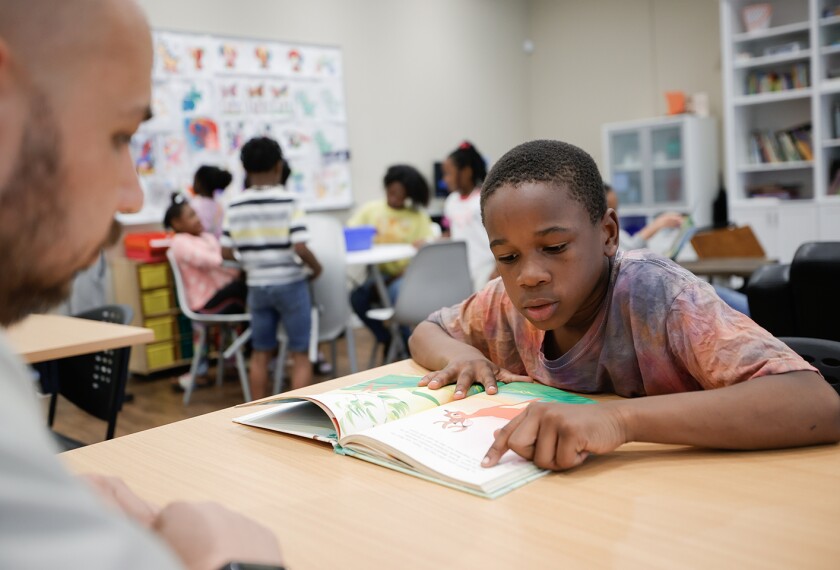Roughly 8 in 10 school districts spent some of their federal COVID relief funds on after-school or summer learning, according to a
The majority of districts focused those programs almost entirely on tutoring and other academic supports, rather than a combination of academic learning and enrichment experiences, such as arts, sports, or career exploration, the report found.
But emphasizing primarily academics—without other kinds of programming—in after-school or summer programs represents a missed opportunity to reach students who might have lost interest in school, said Jen Rinehart, the Afterschool Alliance’s senior vice-president for strategy and programs.
“You hear kids talking about really wanting opportunities to connect and to be able to explore things that interest and excite them and just play around with content in a low-stakes way,” she said. “And that’s hard to do if you’re just talking academics.”
The Afterschool Alliance reviewed more than 6,300 school districts’ plans for spending more than $120 billion in federal relief money, including plans from districts in all 50 states and public schools in the District of Columbia. Nearly 4,000 of those proposals cited after-school or summer learning in some way, though in some cases specific budgets were unclear, according to the report.
Of the 3,988 plans that mentioned using money for after-school programs, more than half—53 percent—specified the funds would be spent on tutoring and academic programs only, such as extended day reading and math instruction programs staffed by teachers.
Nearly 1 of every 5 districts (19 percent) reported spending the money on programs that included both academic and enrichment components. For example, alongside tutoring, one unidentified district cited in the report offered components like physical fitness, drug and violence prevention, nutrition, service learning, and art and music.
Of the 4,632 plans that cited summer programs, 46 percent provided programs focusing on academics alone. For instance, an unidentified district cited in the report emphasized credit recovery for high schoolers.
About a quarter (27 percent) of districts described pairing academics and enrichment in their summer programs. For example, one district created a free six-week summer program for students. The morning focused on academic work, but in the afternoon, students could explore interests like art and participate in outdoor recreation activities, as well as STEM learning.
The report recommends that school districts use comprehensive after-school and summer programs that combine academic learning and enrichment activities as part of their strategy to accelerate students’ learning and increase engagement. It also suggests they work with community partners to provide after-school and summer learning opportunities.
Why schools feel pressure to focus on academics only
Rinehart understands why districts would feel pressure to focus primarily—or exclusively—on academics.
The most recent scores on the National Assessment of Educational Progress, or NAEP, showed the biggest drop in math performance in 4th and 8th grades since the testing program began in 1990. In reading, 4th and 8th graders performed on par with students in the 1990s. About a third of students in both grades couldn’t read at even the “basic” achievement level—the lowest level on the test.
Making up for that lost academic ground is likely part of the reason for districts’ emphasis on learning recovery in after-school and summer programs, Rinehart said.
“It’s not to say that tutoring isn’t a good use of dollars,” she said. “I think it’s to say that tutoring embedded in these other, more comprehensive approaches could be an even better use of dollars.”






